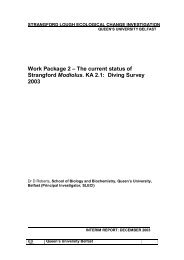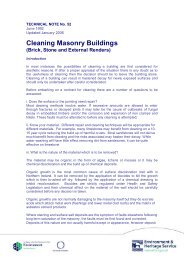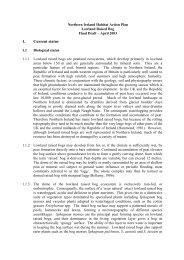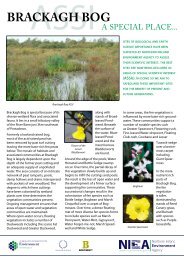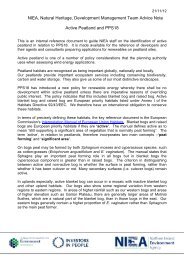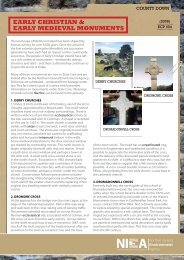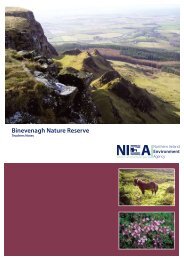Municipal Waste Data Monitoring and Reporting: Interim Guidelines
Municipal Waste Data Monitoring and Reporting: Interim Guidelines
Municipal Waste Data Monitoring and Reporting: Interim Guidelines
You also want an ePaper? Increase the reach of your titles
YUMPU automatically turns print PDFs into web optimized ePapers that Google loves.
4 DATA QUALITY REQUIREMENTS<br />
4.1 DATA QUALITY<br />
4.1.1 Consistency<br />
In addition to the consideration of what waste statistics are required, the issue<br />
of data quality is equally vital. The main data quality requirements are:<br />
• consistency;<br />
• auditability / traceability / integrity;<br />
• timeliness; <strong>and</strong><br />
• minimal paperwork.<br />
These criteria are discussed briefly below.<br />
The value of undertaking an extensive data collection process is limited if the<br />
data collected are not collated in a consistent manner. It is vital to ensure that<br />
common rules apply to all data gathering activities. Small variations in the<br />
methodology adopted for gathering <strong>and</strong> recording data can make significant<br />
differences to the figures presented, so it is crucial that data are collected on a<br />
consistent basis across each authority (i.e. all District Council operations) to<br />
enable meaningful comparisons <strong>and</strong> trend tracking. District Councils should<br />
thus ensure that the procedures developed for data monitoring are fully<br />
adopted <strong>and</strong> maintained. This issue further reinforces the need for a <strong>Data</strong><br />
<strong>Reporting</strong> Officer (as described in Section 3.3) with sufficient authority to<br />
implement <strong>and</strong> enforce adequate monitoring <strong>and</strong> reporting systems.<br />
4.1.2 Auditability / traceability / integrity<br />
An auditable data recording <strong>and</strong> monitoring system is essential to<br />
demonstrate the authenticity of the data <strong>and</strong> KPIs calculated from the<br />
datasets. The most practical way of achieving this is to document the<br />
procedures that are adopted in data gathering <strong>and</strong> to ensure that the<br />
documented procedures are deployed in the actual data gathering <strong>and</strong><br />
collation processes. The use of simple step-by-step procedures will provide an<br />
auditable trail of data <strong>and</strong> also enhance the identification <strong>and</strong> resolution of<br />
data errors whenever they occur.<br />
In particular, it is essential that District Councils are able to provide<br />
demonstrable evidence of the quantities <strong>and</strong> fate of materials collected<br />
forrecycled <strong>and</strong> composting. District Councils will be required to verify <strong>and</strong><br />
document the recycling / composting / reprocessing activities of their<br />
operators <strong>and</strong> recycling merchants <strong>and</strong> thus ascertain the actual percentages<br />
of input waste that is recycled/composted/reprocessed/disposed of <strong>and</strong> their<br />
end markets.<br />
MUNICIPAL WASTE DATA MONITORING AND REPORTING: INTERIM GUIDELINES 13





